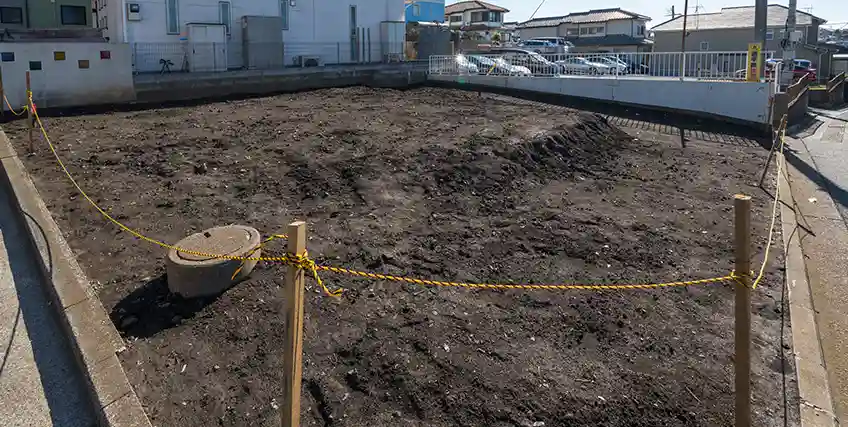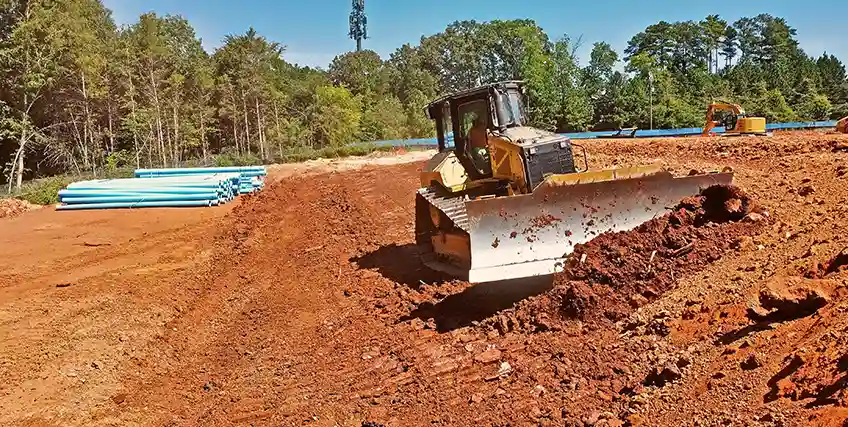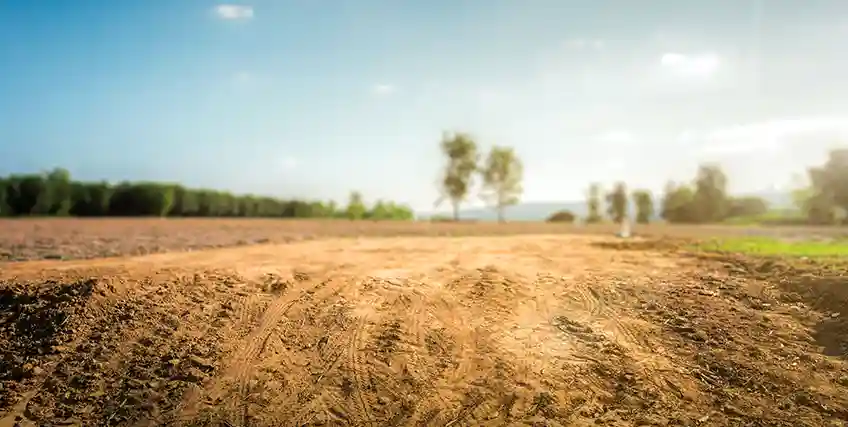Land Purchase Financing Your Options Explained
November 26, 2025 | Last Updated on: November 26, 2025

To purchase land for business purposes is more of a transaction. It’s a move that helps in shaping a business’s future. Business owners can use land to build a new facility, a custom-built headquarters, or consider it as a future real estate investment. However, land purchase financing isn’t easy securing a typical mortgage.
Small business owners need to understand the different types of loan options and the type of land they’re targeting for their business. For example, a small landscaping company in Georgia opted for a lot loan to secure one-acre piece of land. They planned to build their office and storage facility in the following year.In this guide, we’ll explore the different land purchase financing options for small businesses in the U.S. We will also discuss lender expectations and different requirements for land loans.
Understanding Land Types and Their Impact on Financing
Before choosing a type of land purchase financing option, identifying the type of land is the first step. Each land type influences loan terms, interest rates, and monthly payments. Also, your financing options often depend on how well the land matches your business vision and lender’s expectations.
Here are the different types of land to purchase for business owners.
Raw Land
Raw land or bare land has no access to water, electricity, or sewer lines. Also, raw land loans are hard to secure without a strong credit score, a high down payment, and a solid development plan.
Unimproved Land
Unimproved land is much better than raw land. It includes basic road access but lacks utilities. To secure loans for unimproved land, borrowers must show the feasibility of the project to get favorable loan terms.
Improved Land
Improved land is ready for development. For these lands, lenders may offer more competitive rates, easier approval, and options like lot loans or traditional mortgage plans.
Therefore, the type of land impacts land purchase financing. It shapes your construction timeline, affects your monthly payments, and can determine the long-term profitability of your business expansion.
Different Types of Land Purchase Financing Options
Here are the different types of land purchase financing options for small business owners aiming to purchase land in the United States.
Traditional Loans
Traditional loans are offered by banks and credit unions and are well-suited for purchasing improved land. This land purchase financing option functions similarly to traditional mortgage products, best for land purchases.
Business owners who have strong financials, high credit scores, and verified tax returns may qualify for competitive rates and longer repayment terms. Therefore, traditional loans are best to purchase land that is already zoned and ready for development.
Lot Loans
A lot loan helps secure a piece of land now, even if you don’t plan to build right away. These land purchase financing options are ideal for business owners preparing for phased expansion or awaiting approval permits.
Small business owners can apply for land loans online with most banks and credit unions, making the application process convenient and fast. Lot loans are specifically designed for land intended for future construction and usually require a 10%-20% down payment. These can be used for holding land for a new office, a second location, or a commercial sale.
Raw or Unimproved Land Loans
Raw or unimproved land loans are designed for purchasing raw land with little or no infrastructure. These land purchase financing options carry more risk for lenders, which means higher loan rates, larger down payment requirements, and more scrutiny of the loan application.
Businesses looking to develop remote or rural properties often pursue this financing option. These loans usually come with higher interest rates and demand a larger upfront investment due to limited infrastructure. Additionally, lenders will require a solid business plan to grant you business loans for land purchases.
Construction Loans
A construction loan provides funding for both the land purchase and the cost of building. This is a short-term land purchase financing solution that converts into a mortgage loan once construction is complete.
Businesses ready to act on their development plans can use these construction loans. These loans typically offer interest-only monthly payments during the construction phase. However, they require blueprints, budgets, and permits as part of the loan application. Hence, these loans help fund the full lifecycle from bare land to a completed property.
SBA Loans
The SBA loans are backed by the U.S. Small Business Administration and are perfect for small businesses acquiring land for expansion. The SBA 504 loan is used for fixed assets like land, while the SBA 7(a) loan offers more flexible usage, including refinancing existing debts or funding site improvements.
Business owners can apply for the SBA loans through NMLS-registered lenders. The SBA 504 loan structure involves a 50% bank loan, a 40% SBA-backed portion, and 10% from the borrower. On the other hand, the SBA 7(a) loan can be used for land loans and working capital. Therefore, both these loans offer favorable loan terms to support long-term business growth.
USDA Business & Industry Loans
These land purchase financing options are backed by the U.S. Department of Agriculture and are meant for businesses in rural areas. If your small business needs farmland or land for manufacturing or services in smaller towns, these loan options are the best. Moreover, these loans also support businesses seeking to revitalize economically challenged zones.
Small business owners can consider these loans as they come with a lower interest rate, including closing costs, and an extended repayment period. These loans often function as a strong alternative to private or traditional mortgage loans.
Farm Credit Loans
The farm credit system supports businesses focused on agriculture or food production. It offers loans for buying rural land, expanding operations, or starting new farming ventures. These land purchase financing options come with seasonal payment plans and generous eligibility windows.
Small businesses can use farm credit loan options with flexible repayment terms to fund equipment or construction along with land purchases.
Seller Financing
A seller financing solution is a real estate agreement where the seller acts as a lender, offering a direct financing path without involving a bank. This approach can work well if you’re facing a tight approval environment from banks and credit unions. This land purchase financing option is common in small or local sales.
Seller financing provides easier approval for lower credit score buyers, negotiable land purchase loan rates, and flexible repayment terms. However, it is important to review terms with a real estate agent or legal advisor before considering this financing option.
What Factors to Look for Before Considering Land Purchase Financing Options
Lenders consider many factors before approving your loan. These factors help them assess the level of risk and ensure the borrower is financially prepared. Here's what you should evaluate too:
- Type of Land: Improved land offers better land purchase financing However, bare land or raw land means higher interest rates and strict conditions.
- Location & Zoning: Confirm whether zoning aligns with your business plans. Moreover, real estate agent consultations can help you assess this.
- Down Payment: Most land loans require upfront payment of 10% to 20%. While raw land may demand more.
- Loan Terms: Always pay attention to fixed rate vs. variable terms, repayment period, and monthly payments.
- Eligibility & Documentation: Lenders often request proof of income, tax returns, and a business plan. Additionally, a credit score over 680 improves your chances for securing land purchase financing
Conclusion
Buying land for your small business is a big step. From rural properties to commercial real estate, the land purchase financing options are diverse.
As a business owner, choosing the right loan program starts with understanding your land type, credit score, and business goals. Whether it’s lot loans, farm credit, or USDA-backed options, there’s something available for every business.
Just prepare your documents, budget for the down payment, and consult a qualified loan officer or lender. You can also apply for a land loan online to get started today.
Frequently Asked Questions About Land Purchase Financing Options
What is the ideal type of loan for buying land as a business owner?
That really depends on your business goals and the type of land you plan to buy. While some prefer SBA 504 loans for long-term use, others might explore lot loans or construction loans. It’s always good to compare options based on interest rates, terms, and eligibility.
Is it harder to get financing for raw or unimproved land?
Raw land usually comes with more conditions, which might make approval a bit more complex. Since there’s little to no development, lenders tend to be more cautious. However, things could vary based on your financial background and business plan.
How much down payment should I expect for a land loan?
Down payments tend to range, often influenced by the type of land and the lender’s risk evaluation. Some borrowers might manage with 10%, while others could be asked for more. So, it’s worth preparing for a wider range.
Can I use a construction loan to buy land and build on it later?
Some construction loans do cover land purchases, though that might not be the case with every lender. They are usually short-term and often converted to mortgages, but loan terms can differ. So, it's helpful to confirm the structure before applying.
What kind of land qualifies for USDA loans?
Eligibility for USDA loans often ties to rural zoning and your business type. Some commercial or agricultural lands may meet the requirements. Nevertheless, it’s usually worth checking the USDA map or speaking with a loan officer for clarity.




